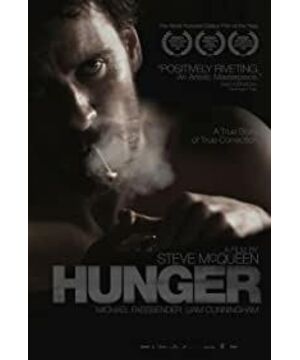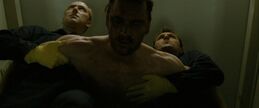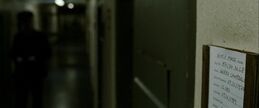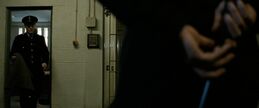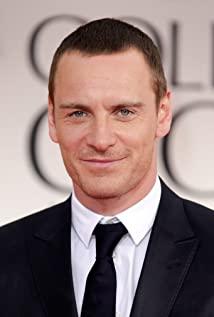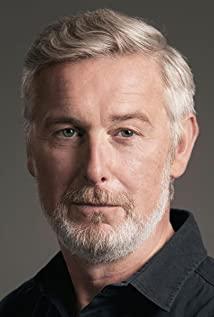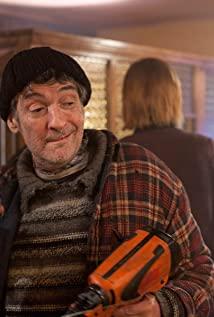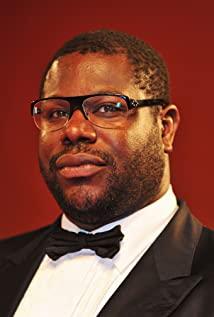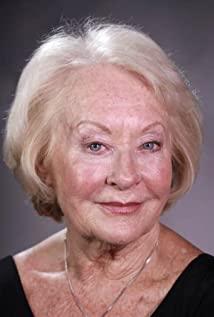Watching HUNGER I felt completely disoriented and disconnected in the first 45 minutes, without knowing much about the history of Northern Ireland. I thought it was trying to create intensity with violence, with the disgusting environment full of excrement and with the extremely dark tone. But I didn't get anything about these IRA prisoners' motivation, as we're following this Gillan's character who works as an observer. I didn't get how determined they were to refuse wearing as criminals. I didn't get what there goal is and what there plan is. Their action looks disorganized and out of nowhere to me. The way it shows the protest is very powerful but objective, with these shots on the hall way, with urine flowing on the ground.
However, when the long conversation between Bobby and the priest happened, I realized that the ambiguity of the first 45 minutes is exactly what's special about the movie. In this 20 minutes long scene, with a super objective two shot in which two characters sit still on their chairs with their faces in darkness, I was totally attracted and didn't feel bored for a second. I paid attention to every sentence they said because I was eager to know everything, about the protest, about what are they thinking, after 45 minutes intense ambiguity. That's the point when I finally get to know the character and motivation. And it shocked me. I went back to see the first 45 minutes again after watching the whole movie and all the images became much more powerful.
This structure is kind of reflected in the opening sequence when we are watching the officer washing his hands. The audience kind of feel the tension on his face but knows nothing about the condition. It's almost annoying as the shots are too long, pacing is too slow but we are in blankness. Then at the point when we almost forgot the officer, he showed up again and beat up the prisoner. And we see the same sequence as in the opening after that. It's suddenly given with significant meaning. We then realized that we were watching a officer struggling with his conscience, with the new information which comes a little bit late in the film.
It functions similarly as we watch the whole movie. The long conversation at the middle part which went so deep into character motivation gave the material significant meaning. Therefore the second part when we see Bobby's character under through the hunger protest feels much more powerful than the first half. I felt breathless the moment when the doctor put the metal standing above Bobby's body because he couldn't even burden the quilt.
I think the structure in which the audience are far behind the characters until one point in the movie works very well in order to achieve the director's intention. It's a bold choice the director made to keep the audience in the ambiguity early in the morning. Because It also makes the audience lean forward when it gets to the point explaining everything.
View more about Hunger reviews


